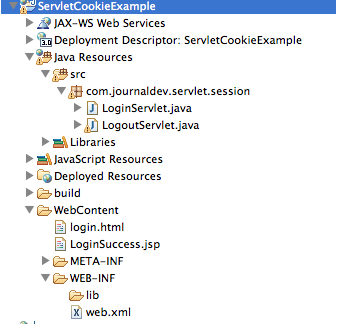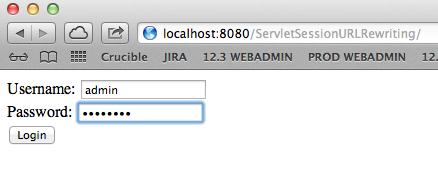link管理
链接快照平台
- 输入网页链接,自动生成快照
- 标签化管理网页链接
相关文章推荐
|
|
热心肠的匕首 · Vuetify-nuxt-module · ...· 2 月前 · |
|
|
谈吐大方的佛珠 · 科学上网 – 数据分析师之路· 3 月前 · |
|
|
鼻子大的拖把 · 人生的感悟:甘于淡泊乐于寂寞_网易订阅· 4 月前 · |
|
|
聪明的海龟 · Azure Boards 中冲刺 ...· 5 月前 · |
|
|
拉风的汉堡包 · 耶利米書 50:29 ...· 5 月前 · |













JournalDev
DigitalOcean Employee

•
September 4, 2021
if cookies are not disabled, you won’t see jsessionid in the URL because Servlet Session API will use cookies in that case. >> shouldn’t that be “if cookies are disabled, you won’t see jsessionid in the URL…”?- abs
JournalDev
DigitalOcean Employee

•
May 24, 2020
Hi Pankaj, Great article! Im working on session management for one my projects. I have one issue regarding the session for subsequent requests. The problem I am facing is I am creating the session in for endpoint in backend and setting a attribute in that session. But when I’m hitting the next subsequent endpoints I am not able to fetch the same session. I can see both session I’d and jsession id in the frontend. But somehow I’m not able to get it in the backend. Having said that the same implementation for login endpoint the session is successfully fetched for subsequent calls. Also when I’m hitting from postman I’m getting the session in the subsequent requests but when I try it from browser it won’t work. Any idea what could I be possibly missing here? Thanks.- Chaitresh Naik
JournalDev
DigitalOcean Employee

•
May 4, 2020
excellent article … As i m trying to understand what session is? And thanks for the use case.- praneeth
JournalDev
DigitalOcean Employee

•
November 7, 2019
Really very good and useful article- Ghulam Murtaza
JournalDev
DigitalOcean Employee

•
April 13, 2019
Thanks for this helpful material- usman
JournalDev
DigitalOcean Employee

•
December 19, 2018
Hi, Pankaj. Your tutorials are very amazing! Can you tell me how you learn it, which books or documentation that you have read ? thank you so much!- thuong pham
JournalDev
DigitalOcean Employee

•
June 2, 2018
Can you explain the difference between encodeURL and encodeRedirectURL. In my experiment, encodeRedirectURL in LoginServlet.java will append the session id into URL even if cookies are abled.- suxin
JournalDev
DigitalOcean Employee

•
February 16, 2018
I am new to session management, but my question is, why we have used Cookie[] ?- rajesh
JournalDev
DigitalOcean Employee

•
December 29, 2017
i was totally unaware of JSESSIONID, you should have explained it better. Thanks anyway. great job.- Arun SIngh